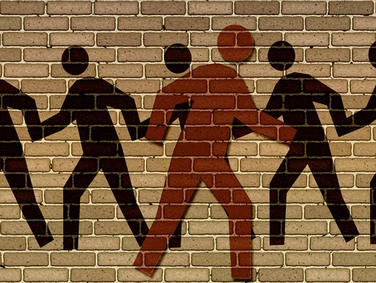 If you are a parent or have a child in your life, you have probably found yourself offering advice and reinforcement: “Be careful,” “Button your coat,” “Share!” – and when they eat their vegetables or achieve a milestone: “Good job.” What if these comments are more about adult control than actual child learning? (Tweet it!) Jennifer Lehr, author of the new book Parentspeak: What’s Wrong with How we Speak to our Children—and What to Say Instead, says it’s better to be a wingman, someone who has their child’s back and, in so doing, models appropriate interactions. For example, if someone gives their child a gift, a parent often defaults to saying something like, “Can you say thank you?” Using the wingman approach, the parent might say something like, “Thank you, Aunt Sue, for giving Maggie such a beautiful sweater.” Much of the time, the child will join in and mirror the parent’s thank you — and consequently hardwire the response on their own. Have you ever tried the wingman approach? What did you notice? To join the conversation, click "comments" on our Community of Practice Forum. If you would like to read more about creating a habit around masterful communication, check out our book: Be Quiet, Be Heard: The Paradox of Persuasion.
0 Comments
 Wharton professor Jonah Berger, author of the new book Invisible Influencers, says we all seek to be “optimally distinct” (Tweet it!). This means “being sufficiently yourself so your actions don’t violate your identity or integrity, but also enough like the peer group you admire to gain its members’ acceptance.” Berger says we send out signals—sometimes via brands we choose— that we hope will be interpreted correctly by people with whom we identify. Yet, we want those signals to be subtle enough that they’ll be missed by the people we don’t want to read them. Being optimally distinct can be tricky. If something gets “too popular,” we might reject it because too many other people mimic each other in praising or purchasing it. We might also reject a product of brand because someone we dislike embraces it. In 2010, actress Nicole “Snooki” Polizzi of the reality TV show Jersey Shore—received a free Gucci handbag in the mail. At the height of her fame, marketers sent Polizzi a lot of free merchandise, but In this case, a Gucci competitor sent the bag— knowing if she was seen carrying it, the perceived value of Gucci bags would drop among sophisticated buyers. Her castmate Mike “The Situation” Sorrentino entered a reverse endorsement deal with Abercrombie & Fitch. For reasons like those of Gucci’s sneaky rival, it paid him never to wear its clothes! Do you think your brand preferences are shaped, at least in part, by wanting to identify—or not identify—with a certain type of group? Is this something you have consciously thought about before? To join the conversation, click "comments" on our Community of Practice Forum. If you would like to read more about creating a habit around masterful communication, check out our book: Be Quiet, Be Heard: The Paradox of Persuasion.  “An overwhelming majority of the bad decisions I’ve made in my life were impulsive. They weren’t errors of faulty logic or ineffective deliberation. They were avoidable mistakes in moments when I was unwilling or unable to manage potent negative emotions. Likewise, the most consequential progress I’ve made in my development as a leader has been not in professional but in emotional competence.” So writes Joseph Grenny, bestselling author of such books as Crucial Conversations and Influencer, in Harvard Business Review. We all experience negative emotions; it’s what we do with them that matters (Tweet it!). Grenny recommends these four steps: Own the emotion: Don’t blame anyone else for what you feel; we generate our own emotions, regardless of stimulus. Name the Story: Recognize if you have cast yourself in the role of victim, villain, or helpless one. Challenge the Story – Once you identify your self-imposed role you can ask yourself questions that expose it for the fable it is. Find Your Primal Story – Become aware of habitual scripts that may have dogged you since childhood (e.g. the bullied child) and counter them with opposing messages. Have you ever made a bad decision in the grips of a negative emotion? What do you do to handle yourself when negative emotions arise? Do you see areas for improvement with regard to rewards and incentives? To join the conversation, click "comments" below on our Community of Practice Forum. If you would like to read more about creating a habit around masterful communication, check out our book: Be Quiet, Be Heard: The Paradox of Persuasion  Most organizations—sports teams, universities, Fortune 500 companies—focus on rewarding individual performance. They reward the most productive individuals rather than the most effective groups. Writing in Harvard Business Review, Professor Jay Van Bavel of NYU and Professor Dominic Parker of Lehigh University, both scientists at the Neuroleadership Institute, contend that leaders in these organizations are overlooking something fundamental about human nature—our tribalism (Tweet it!). “Group identity can explain a range of remarkable behaviors, from putting in long hours at work to making the ultimate sacrifice for one’s country,” they note. “Many experiments have now shown that members will act to benefit their groups, even when doing so exacts a personal cost. One reason is because we share in the success and rewards of our in-group members—we bask in reflected glory and feel pleasure when a team member succeeds. To help cultivate a positive group identity, Van Bavel and Parker recommend that leaders reward behavior that advances the goals of the organization, rather than the individual. Effective leaders, they say, provide bonuses, recognition, raises, flexibility, and opportunities based on an entire team’s performance. To avoid free-riding (team members shirking personal responsibility), they suggest giving individual rewards to individuals who make important contributions to a team’s success, i.e. “unsung heroes who work late, cover for colleagues, and enhance the success of the group.” Combining individual and collective rewards, they conclude, promotes stronger group identity and ensures that individual members are encouraged and motivated (both financially and socially) to pursue team goals and help the group succeed. If you work as part of a team, how are your team’s members rewarded? Do you see areas for improvement with regard to rewards and incentives? To join the conversation, click "comments" below on our Community of Practice Forum. If you would like to read more about creating a habit around masterful communication, check out our book: Be Quiet, Be Heard: The Paradox of Persuasion. |
Archives
July 2024
Categories
All
|
|
Glaser & Associates, Inc.
Executive Offices 1740 Craigmont Avenue, Eugene, OR 97405 541-343-7575 | 800-980-0321 [email protected] |
© 2019 Glaser & Associates. All Rights Reserved.


 RSS Feed
RSS Feed